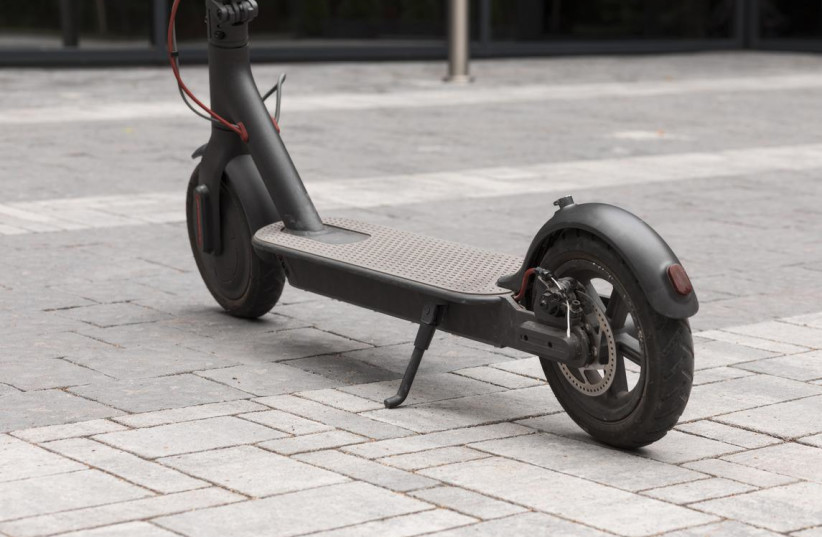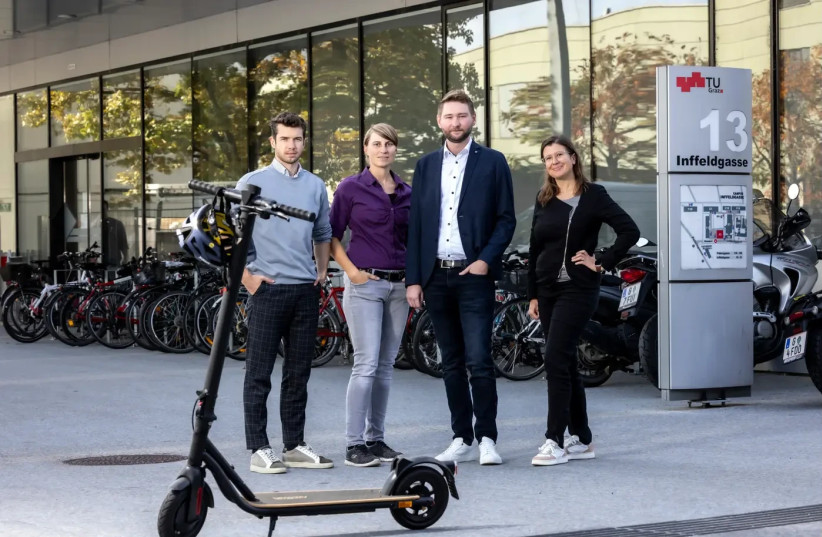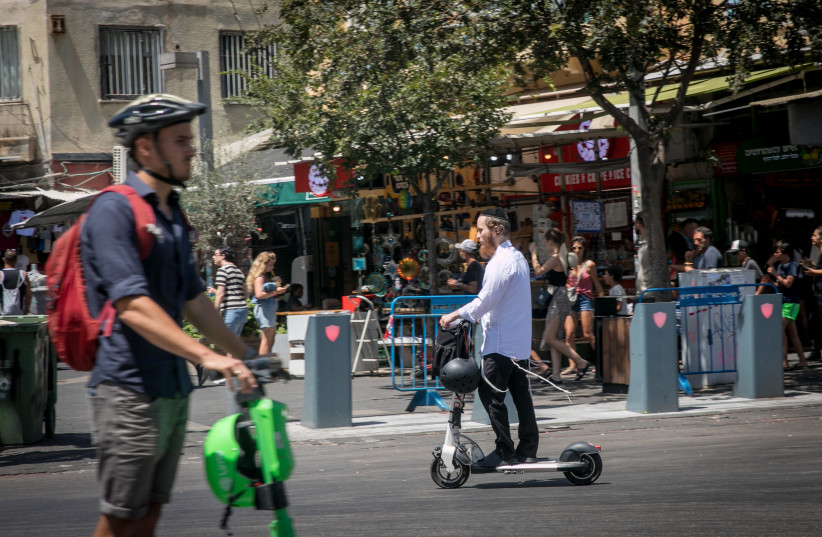The Knesset Economic Affairs Committee is set to approve a new regulation that will mandate license plates for every electric scooter and bicycle in Israel.
The Transportation Ministry will present the regulation, based on a bill proposed by United Torah Judaism MK Yakov Asher, to the Economic Affairs Committee chaired by Likud MK David Bitan. Unlike traditional vehicles, scooter and electric bicycle license plates will be personal to the rider rather than the vehicle. Moreover, there will be no requirement for an annual license fee, and registration can be completed digitally. Each vehicle must display at least one plate, either on the front or rear, or both.

Registration can be done in the name of an individual rider aged 16 or older or in the name of a company. In the event of a sale or decommissioning of the vehicle, the owner will be obligated to report it to the licensing office, which will then remove the vehicle from the registry. Additionally, the owner must ensure that no modifications have been made to the vehicle, such as increasing its power beyond the legal limit of 25 km/h. Some vehicles on the market reach speeds of up to 60-80 km/h, posing a significant safety risk.
Transportation Minister Miri Regev emphasizes the need for identifying marks on scooters, citing that the lack thereof hampers law enforcement. Without license plates, riders can evade police or municipal inspectors who try to issue fines for violations. It also lets riders flee the scene of accidents without being identified. By introducing license plates, it will be easier to locate these riders and hold them accountable.
According to data from the Green Light advocacy group, 26 electric bicycle riders have died in accidents in Israel in 2023, representing twice the number of fatalities compared to the same period in 2022. Furthermore, in 2022, there were 3,608 reported injuries resulting from traffic accidents involving bicycles and scooters, averaging 10 injuries per day.
Green Light supports the licensing initiative but stresses the need to tackle the problem of selling high-performance scooters, improve law enforcement through the collaboration of municipal inspectors and police, and continue developing dedicated bicycle paths to ensure the safety of riders and separate them from the road.

Wearing a helmet reduces the risk of head injury by 44%
Meanwhile, license plates alone will not be enough to enhance rider safety. A recent study conducted by Graz University of Technology in Austria (TU Graz) underscores the importance of wearing a helmet while riding electric scooters. The study reveals that wearing a helmet can reduce the risk of head injuries by a significant 44%.
Moreover, the study highlights the rationale behind prohibiting electric scooters from operating on sidewalks and pedestrian paths. Simulations conducted by Austrian researchers demonstrate that collisions between scooters and pedestrians often result in severe injuries. By reducing collision speeds from 25 km/h to 15 km/h, the risk of head injuries to pedestrians can be mitigated by up to 49%. On the other hand, riding on the road poses its own hazards, as collisions with cars traveling at speeds of 40 km/h can lead to severe or even fatal head injuries for scooter riders.

Christophe Leo, the project manager at TU Graz, explains, "Because e-scooters are a very young form of mobility, we broke new ground in this project to be able to analyze the injury risk in e-scooter accidents. There were previously not many studies on this. However, after analyzing the simulated accidents with the Human Body Models, a very clear picture emerged. Wearing a helmet and reducing the driving speed, especially around pedestrians, can prevent many serious injuries. It would be even more important that e-scooters comply with the ban on driving on pavements and footpaths. In general, the risks of this form of mobility seem to be underestimated, which is why an increasing number of injuries is expected in the coming years. You are safer in road traffic on foot or by bike and simultaneously do something good for yourself and the environment. Anyone who really needs to ride an e-scooter, please at least put on a helmet."
In response, Green Light CEO Yaniv Ya'akov said the Transportation Ministry approved the influx of thousands of electric scooters without adequately preparing the necessary infrastructure or strengthening law enforcement measures. He said that the rising number of victims each year necessitates an examination of the effectiveness of these vehicles in reducing traffic congestion, as well as efforts to improve infrastructure. This includes separating scooter riders from pedestrians on sidewalks and vehicles on roads.
